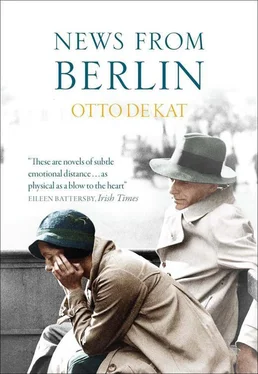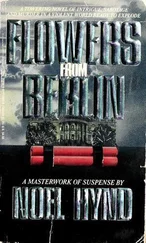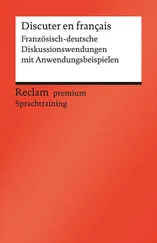Oscar vacillated. Should he go or should he stay? Stay, there was no hurry. Take a long look at the menu, call the waiter, give him your order, ask for more wine, turn the pages of your newspaper at leisure. All of which he proceeded to do. The man sitting some metres away was as nothing to him, a mere smudge at the corner of his gaze. The marina facing the hotel was crowded with sailing craft and rowing boats. Children ran up and down the long wooden jetties. It was eight o’clock, evening fell as the darkness rose up in layers from the lake. The mountains on the far side melted slowly but surely from view.
The newspaper lay untouched on his lap as Barbarossa receded from his consciousness. His thoughts turned to her, and where she might be.
She caught the hum of aircraft. English? Emma waited for the air-raid sirens to go off. They did not. Presumably Luftwaffe. Everyone was tense after the heavy bombing of the city a fortnight ago. Dahlem had not been hit, a pity in a way, as Himmler and Ribbentrop lived virtually around the corner. But the English obviously did not know that. Berlin-Dahlem, little more than a village until quite recently, had been quietly amalgamated into the city. The streets still smelled of earth and meadows, there was a church, a farmers’ market, there were gardens and old country houses. The U-Bahn had a terminal there, where Carl took the train to the Foreign Ministry every morning at seven.
Foreign affairs were becoming less foreign by the day, what with all the new German conquests, Emma remarked drily. They would be making themselves redundant next.
Carl had to smile at her laconic, un-German sense of humour, her plain speaking. Quick, fearless, and unwaveringly good-tempered she was. Like him. They were two of a kind, high-level poker players, leading intense lives on the edge of danger. Carl worked for Adam von Trott, the all-knowing, unflappable Trott, who knew everybody who mattered, who swept his associates along with him in his convictions. And his convictions were diametrically opposed to those of his superiors and the almighty superior in whose name all was directed and done.
They had just returned from Switzerland, their travel bags were still in the hall. It was Monday morning, June 2. They had taken the overnight train, and Carl had gone straight from the station to his office. Emma was exhausted; travelling by sleeper did not agree with her. She wondered what had been the matter with her father. She had never seen him so distracted, so utterly wrapped up in his own thoughts, like a mathematician brooding over a problem, and it had taken some effort to get his attention at all. But the news about Barbarossa had shaken him awake. On reflection, she couldn’t see how she could have been so reckless as to burden him with that secret. It had been going round and round in her head for days, she hadn’t known which way to turn. Her father might be able to do something – who else? The effect had been galvanising. Her distracted father, sitting opposite her in a world of his own, had come crashing back to earth on the instant. He darted a glance around him and asked in a low, urgent voice: “Are you quite sure about this?” She only had time to say yes when Carl reappeared, and quickly changed the subject: “What about Mama, when will you be seeing her again?”
She had kept putting it off, but at some point she would have to confess that she had told her father. She prayed that Carl would understand. In the meantime her poor father would be beside himself with worry. What would he do with her information?
Ever since Carl came home with the news they had been in a welter of conflicting emotions. Carl had even raised a little cheer, despite the gravity. It would mean the downfall of the Nazis, the end of Hitler. The Russians were unbeatable, any invading army would be swallowed up by the sheer vastness. Adam was of the same opinion. Carl was his chief assistant, his junior by only a few years, intelligent, disciplined, sharp. Trott, however, was sharper, he could argue anyone into a corner. A man of many talents. Carl did not hide his esteem for Trott. Emma sometimes felt obliged to temper his enthusiasm, although she too admired the man for his intellect as well as his disarming powers of persuasion. They had accompanied him to Switzerland, which created a splendid opportunity for Emma to meet her father. Carl and he made regular trips to neutral countries, travelling even as far as Russia and America on diplomatic visits to embassies and conferences, their aim being to foster links with the enemy, their secret ally. Emma was many times alone. They had no children, having decided to postpone starting a family until the war was over. And that did not seem likely for the foreseeable future
Carl’s news was deeply distressing: Germany planning to invade Russia on June 22, the whole world taken over, all hell let loose. The ministries were abuzz with “Russia, Russia”. Trott was agitated in the extreme, for all that he never doubted the gangsters would lose in the end. He set up meetings, made efforts to speak with generals, visited friends all over the country. With Carl in his wake as his adviser. Was there any way of stopping the insanity? How many people would have to die first?
Emma went out into the garden, telling herself the bags could wait. Her father’s odd behaviour preoccupied her thoughts. It was not at all like him to be so remote, so timid almost. He had snapped back to his usual self the moment she told him, though. But his evasiveness rankled: she had been so looking forward to seeing him after more than a year’s separation. He had hugged her with a strange sort of detachment, shyly, like a boy. And it was quite soon after she blurted the news that he got up and left, saying a hurried goodbye. Her father was not the most accessible of parents at the best of times, but this was different. She tried to think of an explanation, but the mystery remained.
Rhododendrons in bud, lilies of the valley, an old mulberry tree, hedges in blossom – Emma was surrounded by spring. These were the fragrances of her grandmother’s garden in Hengelo, with the Great War just over the border. Her own garden in Dahlem smelled just the same – fragrances that telescoped time.
Their house stood in a web of green lanes. There was no wind, and all was tranquil. From close by came the reassuring sound of a hedge being clipped, while next door’s dog dug a hole in the gravel with audible enthusiasm. Germany was mobilised to its furthest corners, but standing here you would never have thought it.
She heard a car approaching, faster than normal, then the belligerent slam of car doors half a minute later. Two unremarkable men in long coats – even in fine weather they wore coats, apparently, with the collars turned up. So this was what the Gestapo looked like. It was her first thought when they pushed the gate open and entered the garden without saying a word. Facing them, Emma’s expression was not so much questioning as mildly ironic.
*
“They took me to Prinz-Albrecht-Strasse, Carl. I was there. They let me go after a few hours. They wanted to know – they knew all along of course – whether the man we’d met in Geneva was my father. And what I was whispering about.”
Prinz-Albrecht-Strasse 8, secret police headquarters, watch-tower of hell, rumoured to be a place where more people went in than came out. However, Emma had not been held for very long, presumably to avoid complications with the Foreign Ministry, although Prinz-Albrecht-Strasse bowed to no-one. A pin-prick against Trott? A little dig at them, to show that they were being watched, wherever they were? The mere fact that she was Dutch cast suspicion on Emma, she was given to understand, and having a father working at the Dutch legation in Switzerland was enough reason to be sent to a camp. Hints, intimations of punishable offences, the staple ingredients of the murder-by-stealth methods favoured by the clerks of Himmler’s elite corps.
Читать дальше












